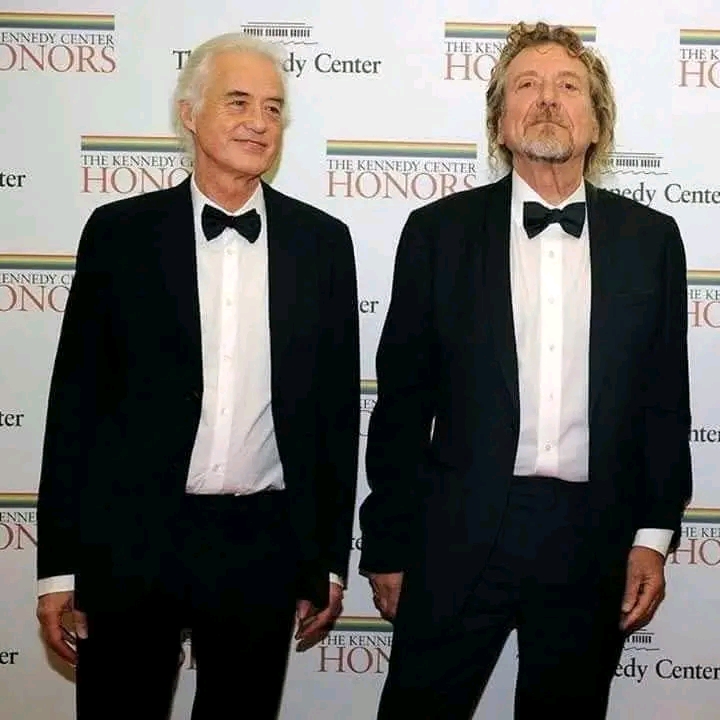The Legendary Partnership of Robert Plant and Jimmy Page: A Rock Legacy
Few musical partnerships have achieved the lasting impact and cultural reverence that Robert Plant and Jimmy Page of Led Zeppelin have. Together, they helped define the very sound and spirit of rock music in the 1970s and beyond. Their collaboration was not only a meeting of immense talent but a synthesis of style, ambition, and innovation that pushed musical boundaries and forged a legacy that continues to influence artists across genres.
Robert Plant, with his golden mane, charismatic stage presence, and otherworldly vocal range, brought a primal energy to Led Zeppelin’s sound. His voice could transition from a bluesy moan to an earth-shaking scream in an instant, carrying both power and emotion. Jimmy Page, the band’s mastermind guitarist and producer, crafted complex, layered compositions that melded blues, folk, hard rock, and Eastern influences into something wholly original. Together, their synergy was electric.
The band’s music, especially during the late 1960s and 1970s, became the blueprint for modern rock. Their 1971 anthem “Stairway to Heaven” is widely considered one of the greatest rock songs of all time. It begins as a gentle acoustic ballad and builds to a soaring climax, showcasing both Plant’s vocal range and Page’s masterful guitar soloing. Despite being over eight minutes long and never released as a single, the song became a staple of classic rock radio and helped cement Led Zeppelin’s mythic status.
“Whole Lotta Love,” released in 1969 on their second album, opened with one of the most iconic guitar riffs in rock history. Page’s use of distortion and Plant’s raw, sensual vocal delivery made the track groundbreaking. The song’s middle section—a swirling, psychedelic soundscape—highlighted their willingness to experiment, making Led Zeppelin pioneers of hard rock and heavy metal.
Then there’s “Immigrant Song,” with its driving rhythm and Plant’s Viking-warrior scream. Clocking in at just over two minutes, the song delivers a powerful punch and has become an enduring cultural reference, featured in countless films, commercials, and television shows. It’s another example of the unique dynamic between Page’s precise, riff-driven guitar and Plant’s commanding vocals.
Beyond individual songs, the band’s live performances became the stuff of legend. Whether they were playing massive arenas or intimate venues, Plant and Page displayed an unmatched onstage chemistry. Page’s violin bow guitar solos and Plant’s magnetic frontman energy turned every show into a theatrical, almost spiritual experience for fans. Their improvisational jams and extended solos showed a deep musical connection, built on mutual respect and creative freedom.
The duo’s impact wasn’t confined to their time with Led Zeppelin. After the band’s breakup in 1980 following the death of drummer John Bonham, Page and Plant reunited for several projects. In the 1990s, they released No Quarter: Jimmy Page and Robert Plant Unledded, which reimagined classic Zeppelin songs with world music influences. This collaboration proved that their artistic bond endured, even decades later, and introduced their music to a new generation.
What truly sets Plant and Page apart from other rock duos is their ability to evolve. They were never content with simply replicating a formula. Whether it was the mystical folk of “The Battle of Evermore,” the bluesy grit of “Since I’ve Been Loving You,” or the genre-defying sprawl of Physical Graffiti, their catalog is a testament to musical curiosity and fearlessness.
Their influence is still felt today. Artists ranging from Jack White and Dave Grohl to Beyoncé and the Arctic Monkeys have cited Led Zeppelin as a major inspiration. Page’s guitar riffs are studied and emulated by countless musicians, while Plant’s vocal style set a new standard for rock frontmen. Their music continues to find new audiences through streaming platforms, film soundtracks, and tributes, underscoring its timeless appeal.
Robert Plant and Jimmy Page were more than just members of a successful rock band—they were architects of a movement that redefined what rock music could be. Their partnership was a perfect storm of talent, vision, and passion. Together, they not only created some of the most iconic music of the 20th century but also left a legacy that will resonate for generations to come.


